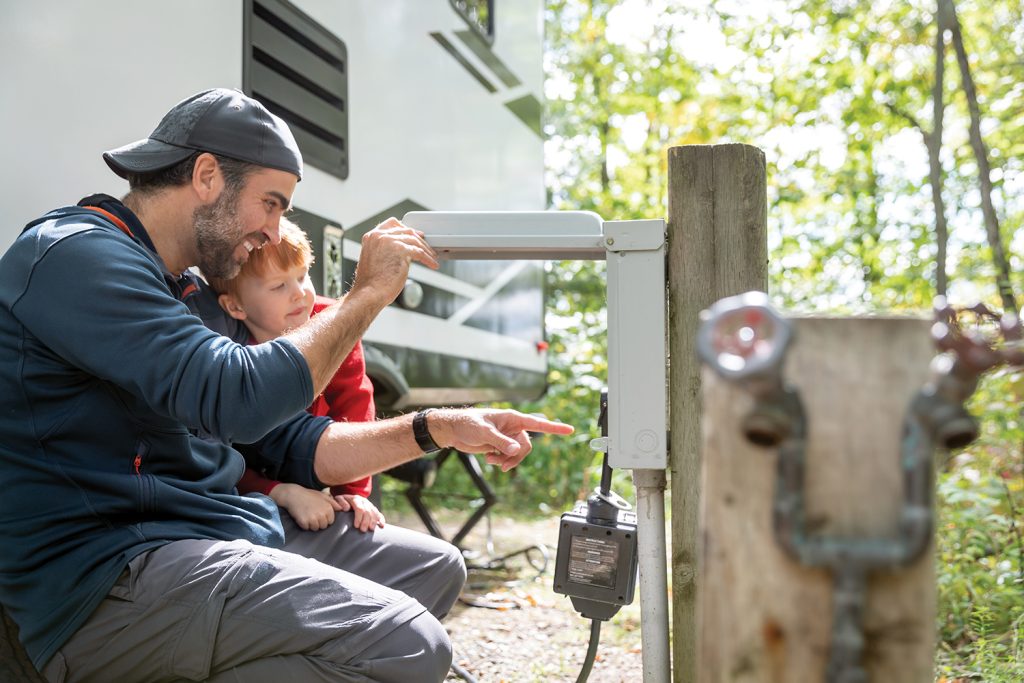
Camping gets us into the great outdoors and lets us leave civilization behind. Yet, for personal preferences or medical reasons, many of us still want or need the modern conveniences or necessities that electricity provides.
Fortunately, most popular campgrounds have electricity at individual sites. For “off-grid” camping, generators and solar panels are becoming more portable.
“Even when we’re trying to get away from it all,” said Jon Elkins, vice president of safety, training and compliance at Indiana Electric Cooperatives, “most of us want at least a small refrigerator or an air mattress inflator, or our CPAP so we’re not keeping the entire campground awake with our snoring. Those things need electricity, and using electricity anywhere requires the same mindfulness as when we’re at home.”
Here are some things campers should keep in mind:
Before you go
Make sure a fire extinguisher is included with your gear. A general ABC fire extinguisher will cover ordinary combustibles, like wood and grass, and fires involving electrical current. Make sure the extension cord you plan to run from the hookup to your tent is heavy enough to handle the load you intend to plug into it. It should have three prongs and a built-in ground-fault circuit interrupter (GFCI) as an added safety measure.
Be aware and observant
Once you arrive at your campsite, inspect the electrical hookup for any damage. For tent camping, a 30-amp hookup is probably the most you’ll need, and it should have a GFCI installed. Make sure the extension cord to your tent doesn’t create a trip hazard. Also, keep it away from the campfire, the drive lane and water.
Recreational vehicle (RV) hookups may have a 50-amp outlet designed for larger RVs. If you need an extension cord, make sure it is rated the same or higher than the supply cord plugged into the hookup. Using an insufficient size can underpower devices or overheat wires. Always use a quality RV surge protector between the hookup and your RV.
Don’t be a statistic
According to the Centers for Disease Control, every year around 400 to 500 people die in tents and campers from carbon monoxide poisoning. Culprits are generally heaters that malfunction in RVs or fossil-fueled electrical generators. Make sure your RV is equipped with fire and carbon monoxide detectors.
Off-grid camping is becoming more popular, and portable generators make it easier. Be sure to choose portable generators with automatic carbon monoxide shutoff systems. Keep the generator outside and as far away from doors and openings as possible. Always position the generator so fumes are pointed away and downwind from your RV, tent and people. Be aware of any neighbors and keep fumes pointed away from them, too.
“Ticks, mosquitoes, poison ivy and scratches might come with camping. But so do fireflies and starry night skies,” Elkins said. “Having electricity when we camp has many benefits — we just have to keep in mind safety, too.”



